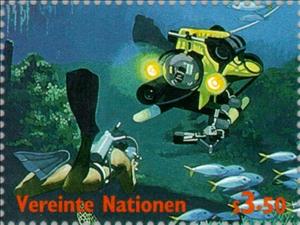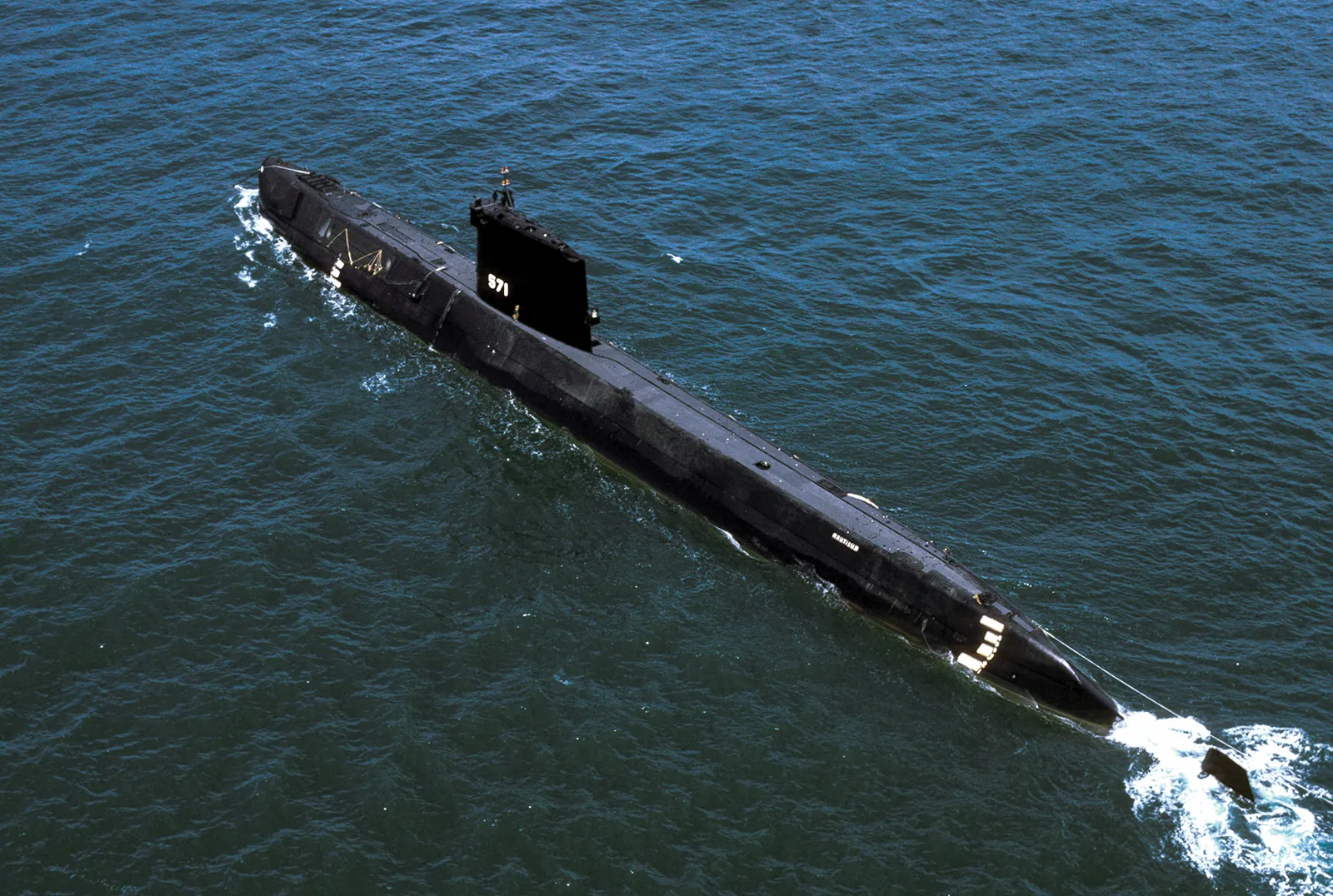Stamp: Remotely operated Vehicle (UNO Vienna 1998)
Remotely operated Vehicle (UNO Vienna 1998)
01 January (UNO Vienna ) within release Int. Year of the Ocean goes into circulation Stamp Remotely operated Vehicle face value 3.50 Austrian schilling
| Stamp Remotely operated Vehicle in catalogues | |
|---|---|
| Michel: | Mi:NT-WN 257 |
Stamp is square format.
Also in the issue Int. Year of the Ocean:
- Stamp - Int. Year of the Ocean face value 3.50;
- Stamp - Int. Year of the Ocean face value 3.50;
- Stamp - Int. Year of the Ocean face value 3.50;
- Stamp - Diving Saucer face value 3.50;
- Stamp - Int. Year of the Ocean face value 3.50;
- Stamp - Remotely operated Vehicle face value 3.50;
- Stamp - Int. Year of the Ocean face value 3.50;
- Stamp - Int. Year of the Ocean face value 3.50;
- Stamp - Int. Year of the Ocean face value 3.50;
- Stamp - Int. Year of the Ocean face value 3.50;
- Stamp - Int. Year of the Ocean face value 3.50;
- Stamp - Int. Year of the Ocean face value 3.50;
|
Data entry completed
46%
|
|
|---|---|
| Stamp Remotely operated Vehicle in digits | |
| Country: | UNO Vienna |
| Date: | 1998-01-01 |
| Emission: | Commemorative |
| Format: | Stamp |
| Face Value: | 3.50 Austrian schilling |
Stamp Remotely operated Vehicle it reflects the thematic directions:
Sports, are all usually forms of competitive physical activity or games which, through casual or organised participation, aim to use, maintain or improve physical ability and skills while providing enjoyment to participants, and in some cases, entertainment for spectators. Usually the contest or game is between two sides, each attempting to exceed the other. Some sports allow a tie game; others provide tie-breaking methods, to ensure one winner and one loser. A number of such two-sided contests may be arranged in a tournament producing a champion. Many sports leagues make an annual champion by arranging games in a regular sports season, followed in some cases by playoffs. Hundreds of sports exist, from those between single contestants, through to those with hundreds of simultaneous participants, either in teams or competing as individuals. In certain sports such as racing, many contestants may compete, each against each other, with one winner.
A submarine (often shortened to sub) is a watercraft capable of independent operation underwater. (It differs from a submersible, which has more limited underwater capability.) The term "submarine" is also sometimes used historically or informally to refer to remotely operated vehicles and robots, or to medium-sized or smaller vessels (such as the midget submarine and the wet sub). Submarines are referred to as boats rather than ships regardless of their size
Water sports or aquatic sports are sports activities conducted on waterbodies and can be categorized according to the degree of immersion by the participants.
Diving is the sport of jumping or falling into water from a platform or springboard, usually while performing acrobatics. Diving is an internationally recognized sport that is part of the Olympic Games. In addition, unstructured and non-competitive diving is a recreational pastime.
A sea is a large body of salty water. There are particular seas and the sea. The sea commonly refers to the World Ocean, the wider body of seawater. Particular seas are either marginal seas, second-order sections of the oceanic sea (e.g. the Mediterranean Sea), or certain large, nearly landlocked bodies of water.
Animals are multicellular, eukaryotic organisms of the kingdom Animalia (also called Metazoa). All animals are motile, meaning they can move spontaneously and independently, at some point in their lives. Their body plan eventually becomes fixed as they develop, although some undergo a process of metamorphosis later on in their lives. All animals are heterotrophs: they must ingest other organisms or their products for sustenance.
A fish is any member of a group of animals that consist of all gill-bearing aquatic craniate animals that lack limbs with digits. They form a sister group to the tunicates, together forming the olfactores. Included in this definition are the living hagfish, lampreys, and cartilaginous and bony fish as well as various extinct related groups. Tetrapods emerged within lobe-finned fishes, so cladistically they are fish as well. However, traditionally fish are rendered obsolete or paraphyletic by excluding the tetrapods (i.e., the amphibians, reptiles, birds and mammals which all descended from within the same ancestry). Because in this manner the term "fish" is defined negatively as a paraphyletic group, it is not considered a formal taxonomic grouping in systematic biology. The traditional term pisces (also ichthyes) is considered a typological, but not a phylogenetic classification. The earliest organisms that can be classified as fish were soft-bodied chordates that first appeared during the Cambrian period. Although they lacked a true spine, they possessed notochords which allowed them to be more agile than their invertebrate counterparts. Fish would continue to evolve through the Paleozoic era, diversifying into a wide variety of forms. Many fish of the Paleozoic developed external armor that protected them from predators. The first fish with jaws appeared in the Silurian period, after which many (such as sharks) became formidable marine predators rather than just the prey of arthropods. Most fish are ectothermic ("cold-blooded"), allowing their body temperatures to vary as ambient temperatures change, though some of the large active swimmers like white shark and tuna can hold a higher core temperature. Fish are abundant in most bodies of water. They can be found in nearly all aquatic environments, from high mountain streams (e.g., char and gudgeon) to the abyssal and even hadal depths of the deepest oceans (e.g., gulpers and anglerfish). With 33,100 described species, fish exhibit greater species diversity than any other group of vertebrates. Fish are an important resource for humans worldwide, especially as food. Commercial and subsistence fishers hunt fish in wild fisheries (see fishing) or farm them in ponds or in cages in the ocean (see aquaculture). They are also caught by recreational fishers, kept as pets, raised by fishkeepers, and exhibited in public aquaria. Fish have had a role in culture through the ages, serving as deities, religious symbols, and as the subjects of art, books and movies.







